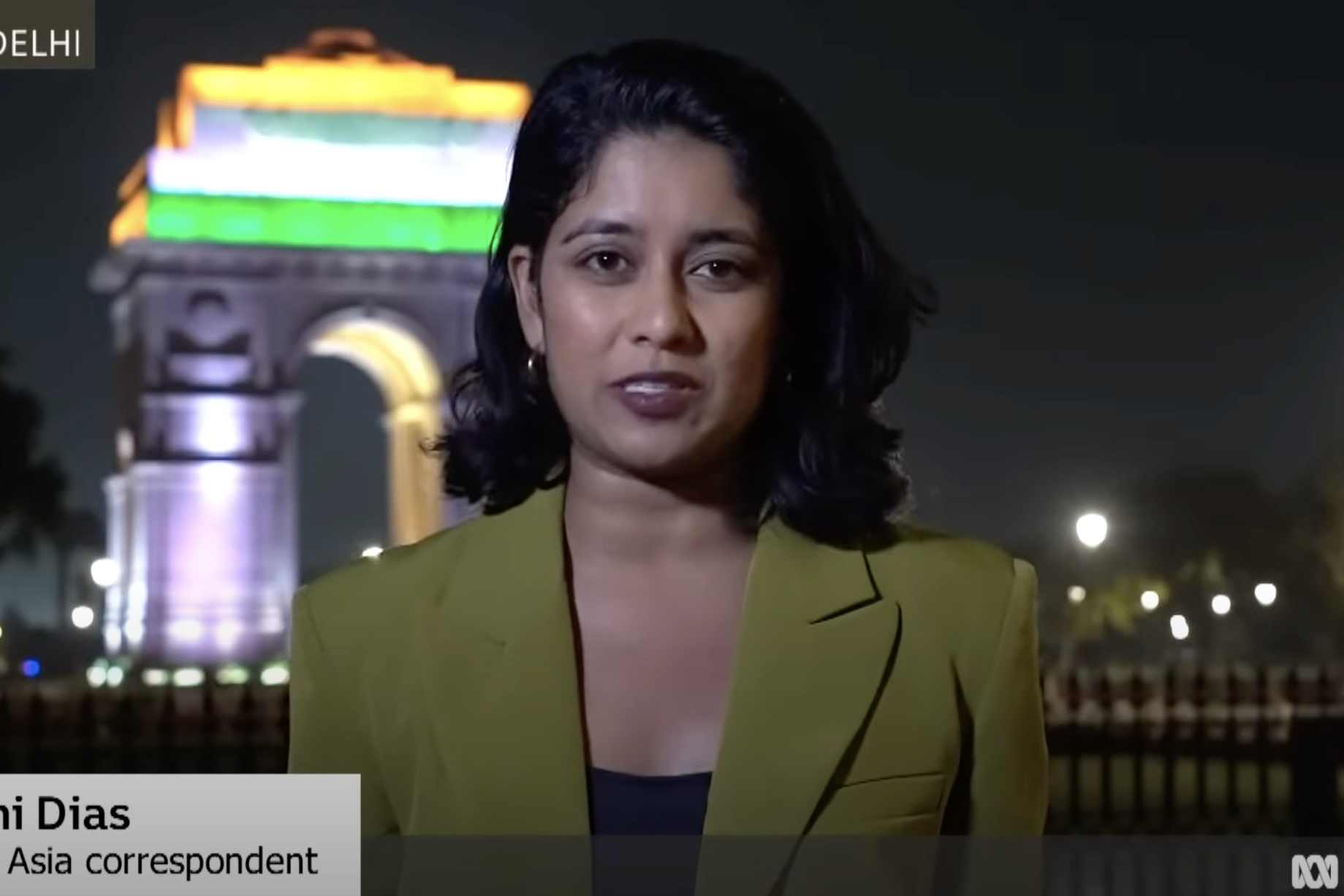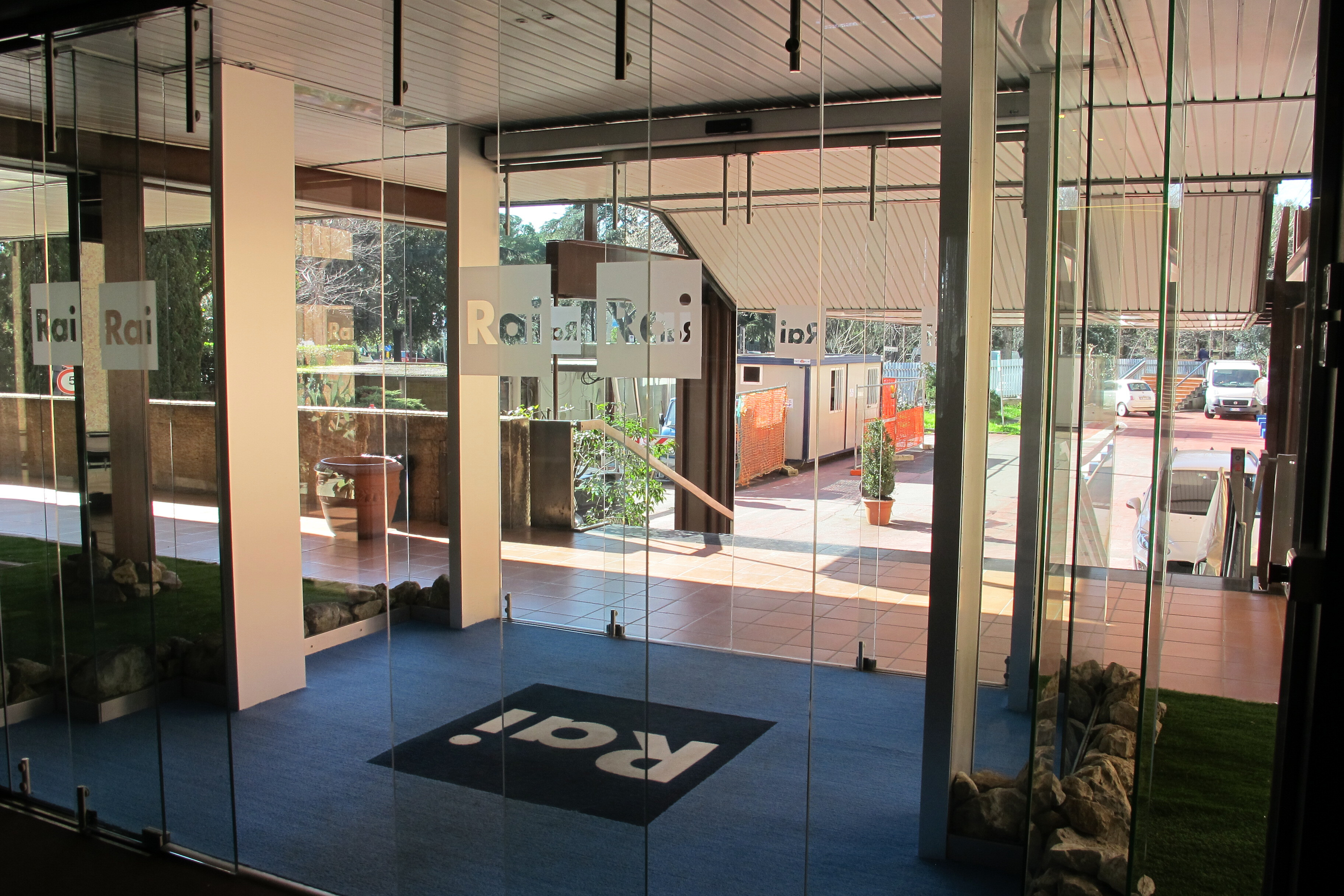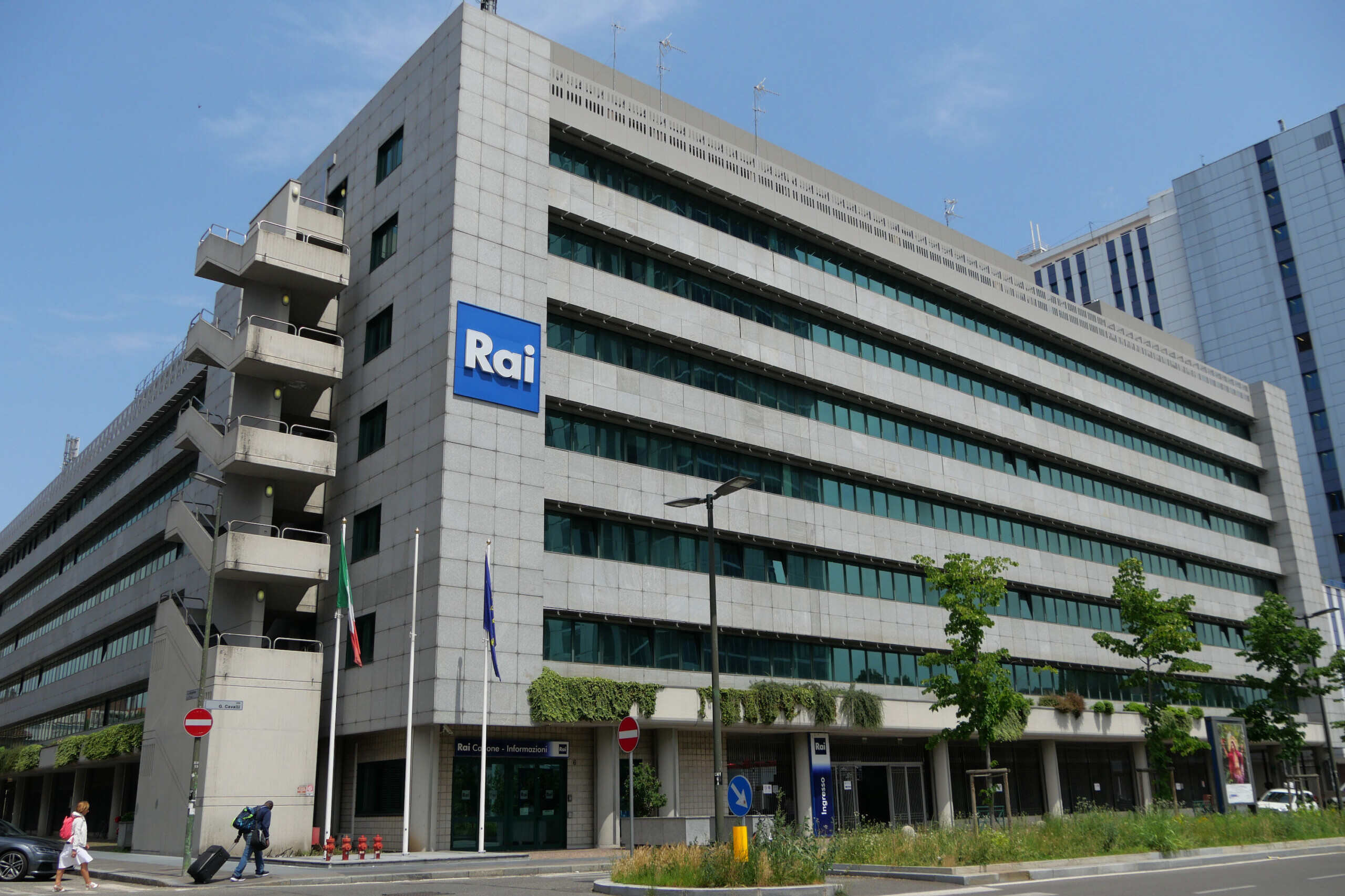Rai journalists strike
Italian public broadcaster accused of bias ahead of elections
25th April 2024
Journalists start five-day strike calling for independent, balanced, and plural public service media, with Meloni’s far-right government accused of turning Rai into a mouthpiece ahead of the European elections.

IN BRIEF:
- Rai journalists strike as the Italian government is accused of attempting to capture the public broadcaster.
- A change in the law regulating the broadcasting of political parties before elections spark criticism, with Rai given ability to grant unrestricted airtime to certain politicians.
- Rai management accused of censorship over the cancellation of the appearance of a famous author in one of the broadcaster’s shows.
- The Union of public broadcaster journalists issued a statement condemning the actions of Rai’s top management and their close relations to the government.
IN FULL:
– By Charlotte Pion
Workers at Rai announced plans for a five-day strike, accusing the Italian public broadcaster of being captured by the far-right amid accusations of censorship.
Discontent erupted over several accusations of interference in editorial content, and the adoption of a controversial law that allows Rai’s news channel to televise political rallies without any journalistic mediation. The adoption of the new law has sparked a wave of criticism from the opposition, journalists and civil society organisations.
The Par condicio resolution
Debate has raged in parliament over amendments to the Italian regulatory authority Agcom’s Par condicio law regulating political party broadcasts in the run-up to the European elections. The discussion concerned conditions for all political parties to be represented equally in public and private TV programmes. The agreed final text ensured that diverse and plural political views have to be broadcast at the same time.
Read more: Protests against Rai following festival broadcast
However, as The Guardian reported recently, one particular amendment was heavily criticised. It concerned the parliament’s supervisory committee for Rai’s approval of a measure which granted unrestricted airtime to politicians when referring to matters of parliament, and the broadcasting of full political rallies “without any journalistic mediation” until the June elections. This led to opposition parties urging the European Commission to investigate the control that prime minister Giorgia Meloni’s government exerted on the Italian public broadcaster.
The Federazione Nazionale Stampa Italiana (FNSI) and the European Federation of Journalists (EFJ) condemned the resolution, calling it another attempt to “politicise public information services for propaganda purposes”.
Oggi in tutte le principali edizioni dei telegiornali #Rai il comunicato sindacale Usigrai che contesta le modifiche al regolamento @AGCOMunica decise dalla maggioranza in commissione di vigilanza@FnsiSocial @vditrapani @FloridiaBarbara @EFJEUROPE https://t.co/MQx1drYYmV
— USIGRai (@USIGRai) April 11, 2024
Listen toour podcast
Uncovering and exploring the biggest
issues facing public media
“A suffocating control”
On Sunday 21 April, the union of public service journalists (USIGRai) issued a press release denouncing the “suffocating and pervasive system of control that violates the principles of journalistic work”. The statement came after the public broadcaster censored the appearance of the writer Antonio Scurati, who was supposed to read a text denouncing the government’s behaviour and its inability to align with anti-fascist values.
The USIGRai intervened, condemning Rai’s decision to cancel Scurati’s appearance. They accused Rai’s top management of overtly blocking “unwanted guests” for alleged economic reasons while abundantly funding political programmes such as “Avanti Popolo”.
“Dear viewers, we dissociate ourselves from the company’s decisions and fight for an independent, balanced and plural public service,” the statement concluded.
In an act of solidarity, Serena Bortone, who hosts the show Scurati was due to appear on, read out the monologue while on air.
Il secondo comunicato in una settimana. La situazione non è grave, di più. pic.twitter.com/ZCAS9TNOEk
— Lorenzo (@levis_of) April 21, 2024
Rai reacted to the statement and letter of the USIGRai, stating that “No control over information and no censorship were carried out by the company against programmes and presenters. Rai is the heritage of all Italians and today more than ever expresses the values of pluralism and freedom of expression”.
“Italy is increasingly distant from Europe and from the standards of the European Media Freedom Act.” – Vittorio Di Trapani, president of the Federazione Nazionale Stampa Italiana(FNSI)
Beside censorship allegations, the journalists’ strike reflects other serious issues within the public broadcaster. Concerns about newspaper mergers and a perceived lack of journalistic integrity are intensified by dissatisfaction with staff cuts, the cancellation of bonuses, the non-replacement of retirees, as well as concerns about RAI’s transition to a digital media company with unclear plans for its journalism.
A distancing from standards
As PMA recently reported, political influence over the Italian public broadcaster appears to have been strengthened since Meloni and her “Brothers of Italy” party came to power in October 2022.
Shortly after the announcement of the USIGRai strike, The Guardian reported that “sources at … Rai, have accused Giorgia Meloni’s rightwing government of wanting to bend the organisation to its will and ‘cancel Italy’s antifascism footprints’”.
Vittorio Di Trapani, president of FNSI, compared the situation in Italy to the tight grip that Prime Minister Viktor Orban holds over the media in Hungary, where the public broadcaster has become more of a government service than a public service. He emphasised that “Italy is increasingly distant from Europe and from the standards of the European Media Freedom Act.”
Related Posts
25th April 2024
ABC journalist’s troubles in India spotlight erosion of media freedoms
ABC journalist leaves India after…
4th March 2024
Protests against Rai following festival broadcast
Protests against Rai erupted after the…
11th May 2023
Rai CEO resigns sparking fears of political interference
“A political clash has erupted over the…



